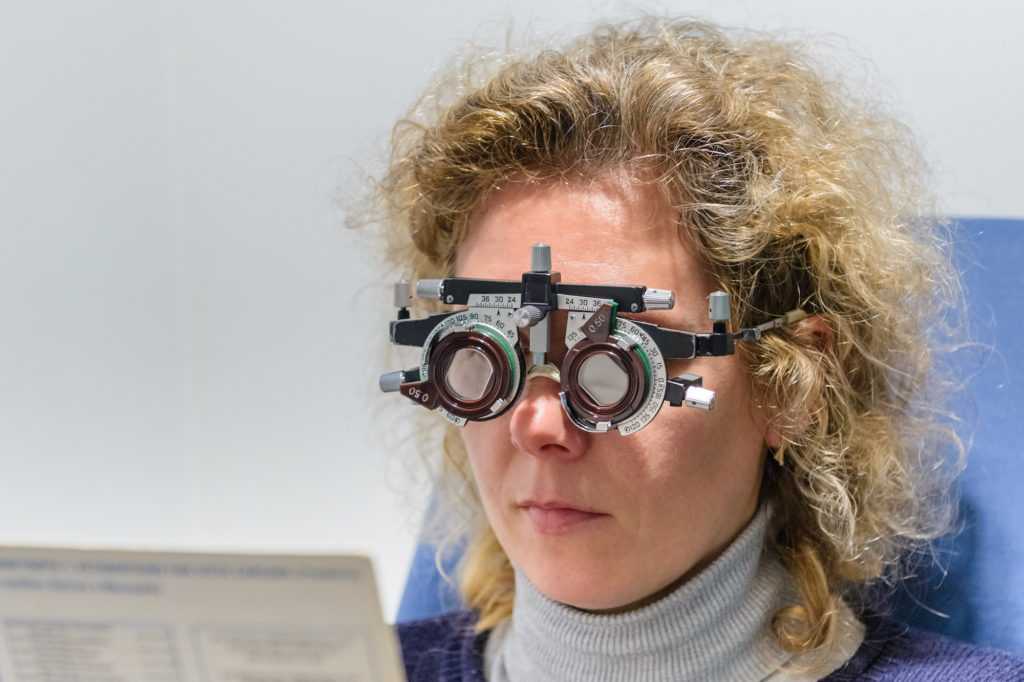As a child, you were probably always told to eat all your veggies, or else you would never grow tall and strong like your favorite superhero. Did your parents also tell you to eat your carrots for great eyesight? Were they right when associating carrots with perfect vision? It seems this notion has been around for a while, so we asked our Registered Dietitians to shed some light on the subject. Can eating carrots help prevent conditions like astigmatism and macular degeneration and help you maintain excellent vision? And should you stock up on these crunchy orange vegetables when passing through the farmers market?
What is Vitamin A?
If you search medical journals for articles on “carrots and healthy vision,” you’re unlikely to come across any studies. It’s not so much carrots that are associated with eyesight but their vitamin content – particularly vitamin A. Vitamin A is responsible for the formation and maintenance of healthy skin, teeth, bones, soft tissues and mucus membranes, including eyes.
Vitamin A is stored in the liver as a fat-soluble vitamin. Unlike water-soluble vitamins, which are removed through urine, fat-soluble vitamins are stored in fats and oils. When it comes to your diet, there are two types of vitamin A. Preformed vitamin is found in animal products such as dairy and meat, while pro-vitamin A is present in plant-based foods such as vegetables and fruits. More specifically, these contain dark-colored pigments called carotenoids that convert to vitamin A. Among 500 existing carotenoids, beta carotene is the clear winner when it comes to protecting your vision.

Beta carotene is an antioxidant, meaning that it oxidizes (or in simpler terms, neutralizes) free radicals that cause damage to cells. A high intake of antioxidants in your diet can prevent certain diseases, such as cancer, and is also said to actively help with conditions related to aging.
How to Get Your Beta Carotene
Studies show that eye problems, including night blindness, are directly related to a lack of vitamin A. While this is reversible, registered dietitians agree that a deficiency in vitamin A can also cause permanent corneal damage, a condition known as xeropthalmia.
While vitamin A supplements are available, studies suggest that obtaining your required minerals and vitamins through a healthy, balanced diet can be much more beneficial than simply popping a pill.
So Are Carrots Good For Your Eyes?
Well, the answer is both yes and no. There are multiple sources of beta carotene. As a rule of thumb, the color intensity of a fruit, vegetable or herb is directly proportional to its beta carotene content. So when strolling through the Durham Farmers Market, keep this slogan in mind: brighter is better.
Below are some plant-based foods with a high content of beta carotene along with their specific density (beta carotene in µg per 100 grams, where 1 µg is 0.000001 gram):
- Spices (paprika, cayenne, chili): 26,162 µg per 100 grams
- Sweet potato (baked): 11,509 µg per 100 grams
- Carrots (cooked): 8,332 µg per 100 grams
- Kale (cooked): 8,823 µg per 100 grams
- Romaine lettuce: 5,226 µg per 100 grams
- Parsley: 5,054 µg per 100 grams
- Dried herbs (marjoram, sage, coriander): 4,806 µg per 100 grams
- Butternut squash (cooked): 4,570 µg per 100 grams
- Garden cress: 4,150 µg per 100 grams
- Cilantro (coriander): 3,930 µg per 100 grams
As you can see, you have plenty of choices while navigating through the produce stands at the market. So while carrots are one of the top three foods high in beta carotene, your daily childhood reminder to eat your carrots could have been replaced with “eat your beta carotene.” Now don’t you wish you could hop into a time-traveling DeLorean and correct your parents at the dinner table?
Apart from fruits and vegetables, other foods to consume for excellent vision include:
- Sources of zinc, such as king crab, lamb, bulgur, lean beef, fortified breakfast cereals, beans, lean pork, dark meat of poultry, whole-wheat or buckwheat flours and pumpkin seeds
- Foods rich in omega-3s, such as salmon, herring, tuna, mackerel, rainbow trout, sardines, flaxseed, English walnuts, canola oil and roasted soybeans
Maintaining a Healthy Weight
On top of incorporating foods rich in beta carotene, healthy weight maintenance is also important for optimizing your eyesight. Obesity is linked to cardiovascular disease, high blood pressure and diabetes, which can damage blood vessels in the eyes. Ultimately, this can lead to vision loss.
The best way to improve your vision health is to include essential vitamins and minerals, particularly beta carotene, in your diet. If you’re unsure what constitutes a balanced meal, it’s a good time to schedule an appointment with LifeStyle Medical Centers. Our interdisciplinary team includes clinicians, nurse practitioners and registered dietitians, all ready to assemble a custom-tailored diet plan for you that includes a large assortment of vegetables, fruits, dairy foods, legumes, whole grains, lentils, and yes – even carrots.
Sources:
http://www.mayoclinic.org/healthy-lifestyle/nutrition-and-healthy-eating/expert-blog/eating-for-eye-health/bgp-20095574
http://www.mayoclinic.org/diseases-conditions/astigmatism/basics/definition/CON-20022003
https://www.ncbi.nlm.nih.gov/pubmed/25057538
https://www.nlm.nih.gov/medlineplus/ency/article/002400.htm
https://www.healthaliciousness.com/articles/natural-food-sources-of-beta-carotene.php


